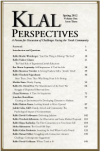In recent years, full time employment of mothers has become the norm in the United States. Recent statistics indicate that 75% of mothers work full time in the first year of their child’s life.1 Since most jobs in the United States only offer maternity leave for the first four to six weeks of a child’s life, the reality is that mothers are generally back to work when their child is still an infant.
By definition, the realities of kollel life (where a husband engages in full-time study of Talmud) typically include a mother needing to return to full or part-time work while their children are still young and the financial demands of an Orthodox Jewish lifestyle often make it necessary for both parents to work in non-kollel families.
Research on the Long-term Impact of Maternal Employment
The research on the long-term impact of maternal employment seems to tell a consistent story.

In 1991, the National Institute of Child Health and Development initiated a comprehensive longitudinal study in ten centers across the United States to address questions about the relationships between maternal employment, child-care experiences and various outcomes in children. The leaders of this study were among the most respected researchers in the field of developmental psychology, making the conclusions of this research particularly worthy of attention. In a recent review of their findings, they drew the following conclusions:2
In terms of the behavioral adjustment of children of middle class or upper middle class mothers who worked when they were infants:
- Full-time maternal employment begun before the child was three months old was associated with significantly more behavior problems reported by caregivers at age 4½ years and by teachers at first grade;
- Children whose mothers worked part-time before their child was one year old had fewer disruptive behavioral problems than the children of mothers who worked full-time before their child’s first birthday. This increased risk for behavioral difficulties was apparent at age three, and during first grade;
- The pathway through which those protective effects of part-time work operated was through increases in the quality of the home environment and in the mother’s sensitivity.
With regard to cognitive difference in the middle and upper middle class sample, the study found that:
- Children of mothers who worked full-time in the first year of that child’s life received modestly lower child cognitive scores relative to children of mothers who do not work on all eight cognitive outcomes examined. Associations at 4½ years and first grade were roughly similar in size to those at age three;
- Mothers who worked full-time were more likely to have symptoms of depression;
- Lower cognitive scores were not found in children of mothers who worked part-time during the first year of their child’s life.
While these findings point to the need to consider the impact of full-time maternal employment on children, particularly before they are three months old, some benefits of full-time work were found in the area of the mother’s ability to be sensitive to her child.
Mothers who worked full-time tended to use higher-quality substitute childcare and to show higher levels of sensitivity to her child. The researchers speculate that the higher levels of maternal sensitivity seen in employed mothers might have stemmed from their having greater financial security.
A recent meta-analysis of 69 research studies spanning five decades,3 evaluating the impact of maternal employment, came to similar conclusions as those summarized above. Early maternal employment was found to be associated with beneficial child outcomes when families were at risk because of either financial challenges or as the result of being single-parent families. In those families, children of working mothers showed higher levels of achievement and lower levels of internalizing behaviors such as anxiety and depression.
These benefits are generally explained by a compensatory hypothesis that views work in those families as providing added financial security, lower levels of family stress and enhanced learning opportunities for children who would otherwise be home with a parent who is dealing with the ongoing stress of poverty and child-rearing challenges with little external support.
Employment was associated with negative child outcomes, however, when children were from intact, middle class families that were not at risk financially. In those families, early full-time employment (relative to mothers who were not working outside the home) was associated with later risk for child behavioral difficulties.
It should be noted, however, that this increased risk was not the case when mothers worked full-time when their children were toddlers or preschoolers. It appears that working full-time when the child is an infant – a critical period in terms of attachment and emotional and cognitive growth – is more likely to be associated with subsequent difficulties.
In summary, the consensus of the empirical studies on the impact of maternal employment finds that child adjustment is tied to a number of relevant variables. In the case of single-parent families, or families otherwise facing poverty, the impact of maternal employment appears to be mostly positive. In the case of middle class or wealthy families when the mother is working full-time, particularly in the early months of a child’s life, there appears to be a mildly increased risk for later behavioral problems and subtle cognitive impact relative to mothers who aren’t working or are working part-time.
It is very important to note, however, that these conclusions cannot necessarily be generalized to our community. There are numerous variables that may differ. For example, in the case of kollel families, where husbands learn full-time, the possibility of a more flexible schedule may result in fathers having the potential of greater involvement in their child’s life than in the case of a father who is employed full time in a traditional job. Similarly, grandparents might be more actively involved in caring for their grandchildren – a factor that is generally associated with improved childcare and improved outcomes.4
Awareness About Full-Time Versus Part-Time
Although based on relatively small levels of statistical significance, the findings of a number of well-executed studies suggest that when parents have a choice early in their child’s life (particularly during the first three months), they should consider working part-time.
During that critical period, when there is an option, the father should make an effort to be present in as active a parenting role as possible. Similarly, if at all feasible, grandparents should be more actively recruited to take care of their grandchildren when they are infants and both parents are working full-time. This has an added benefit since research has found that actively-involved grandparents serve a crucial role as a protective buffer against the potential harmful influences of parental stress.5
It is important to note that the potential dangers of full-time versus part-time work are only found in middle and upper middle class families. This recommendation is therefore most relevant for the segment of our community that falls in that category.
The finding that full-time mothers are at times at greater risk for depression should not be taken lightly. Researchers have found that infants are clearly impacted by their mother’s depression. Infants of parents with depression have been found to have difficulties with self-quieting, lower activity levels and decreased ability to attend. Relative to the children of nondepressed parents, their affect tends to be more negative, as typified by increased likelihood of expressing sadness and anger.
Equally important are the studies on the role of chronic stress in parenting.6 Powerless parents are more likely to:
- be hyper-vigilant with their child;
- focus on the negative, while ignoring improved behavior;
- engage in coercive and punitive parenting;
- misread neutral child cues as malevolent, and
- derogate child in efforts at power repair.
This style of parenting frequently engenders high levels of resistance and at-risk behavior in the adolescent.
The implications of this body of research are that high stress levels, and particularly depression in stressed-out parents, can have long term implications on child development. The community needs to take this into account when prioritizing the need to provide young parents with support.
Quality of Substitute Childcare
Perhaps the most important lesson of the research is the importance of high-quality childcare for children. The key elements of what matters in substitute care are clearly demonstrated here.
Unfortunately, parents in our community are given very little in the way of evidence-based information on how to evaluate a quality program. The guidelines summarized in The Importance of Choosing the Correct Childcare should prove helpful in providing parents with a cognitive map of what to look for.
Data from a recent survey of parents of adolescents in the Orthodox Jewish community did not find any differences in adolescent outcomes for those mothers who reported being at-home mothers as compared with mothers who held other professions.7 However, this was just a first glimpse of the subject.
Additional research needs to be done to determine how the various issues addressed in this paper might present differently in the Orthodox Jewish community. It is clear that we need to do a better job of guiding the next generation of parents on how to navigate the challenges of young parenthood.
Perhaps chosson and kallah (husband and wife) classes can include a segment on some of the guidelines discussed in this paper and rabbinic leaders can set a more mindful agenda about how to marshal the resources of our community to prioritize the importance of provision of high-quality childcare.
I can think of no priority as important as helping parents nourish their young child’s developing mind and soul by better equipping parents to manage the balance between work, parenting and marriage.
Here, a note from Dr. Pelcovitz clarifying his intent in writing this article.
To read firsthand accounts of women who successfully balance work and family, check out the Jewish Action article, Striking a Balance: Work and Family.

This has been reprinted from the Klal Perspectives Journal with edits. Klal Perspectives is an electronic journal dedicated to addressing the unique challenges facing today’s Orthodox communities. Each issue consists of a symposium in which a diverse group of rabbinic and lay leaders share their different perspectives on a given topic.
[1] Brooks-Gunn, J. Han, W., Waldfogel, J. (2010), First-year maternal employment and child development in the first 7 years: VIII. Discussion and Conclusions. Monographs of the Society for Research in Child Development, Vol. 75(2), pp. 96-113.] ↩
[2] Brooks-Gunn, J. Han, W., Waldfogel, J. (2010), First-year maternal employment and child development in the first 7 years: Monographs of the Society for Research in Child Development, Vol 75(2) ↩
[3] Lucas-Thompson, R., Goldberg, W., Prause, J., (2010)Maternal work early in the lives of children and its distal associations with achievement and behavior problems: A meta-analysis. Psychological Bulletin, 136(6)915-942. ↩
[4] The NICHD Early Childcare Research Network (2005) Childcare and child development: Results from the NICHD study of early childcare and youth development.; New York, NY, Guilford Press. ↩
[5] Lussier, G. (2002) Support Across Two Generations Children’s Closeness to Grandparents Following Parental Divorce and Remarriage. Journal of Family Psychology, 16:363-376. ↩
[6] Bugental, D. B., Lyon, J. E., Krantz, J. and Cortez, V., & Krantz, J. (1997). Who’s the boss? Accessibility of dominance ideation among individuals with low perceptions of interpersonal power. Journal of Personality and Social Psychology, 72, 1297-1309. ↩
[7] Cahn, J. (2011). Adolescent children of newly-Orthodox Jewish parents: Family functioning, parenting, and community integration as correlates of adjustment. (Unpublished doctoral dissertation). Yeshiva University Azrieli Graduate School of Jewish Education and Administration, New York. ↩
David Pelcovitz, Ph.D. holds the Gwendolyn and Joseph Straus Chair in Psychology and Jewish Education at Yeshiva University’s Azrieli Graduate School of Jewish Education.
The words of this author reflect his/her own opinions and do not necessarily represent the official position of the Orthodox Union.

